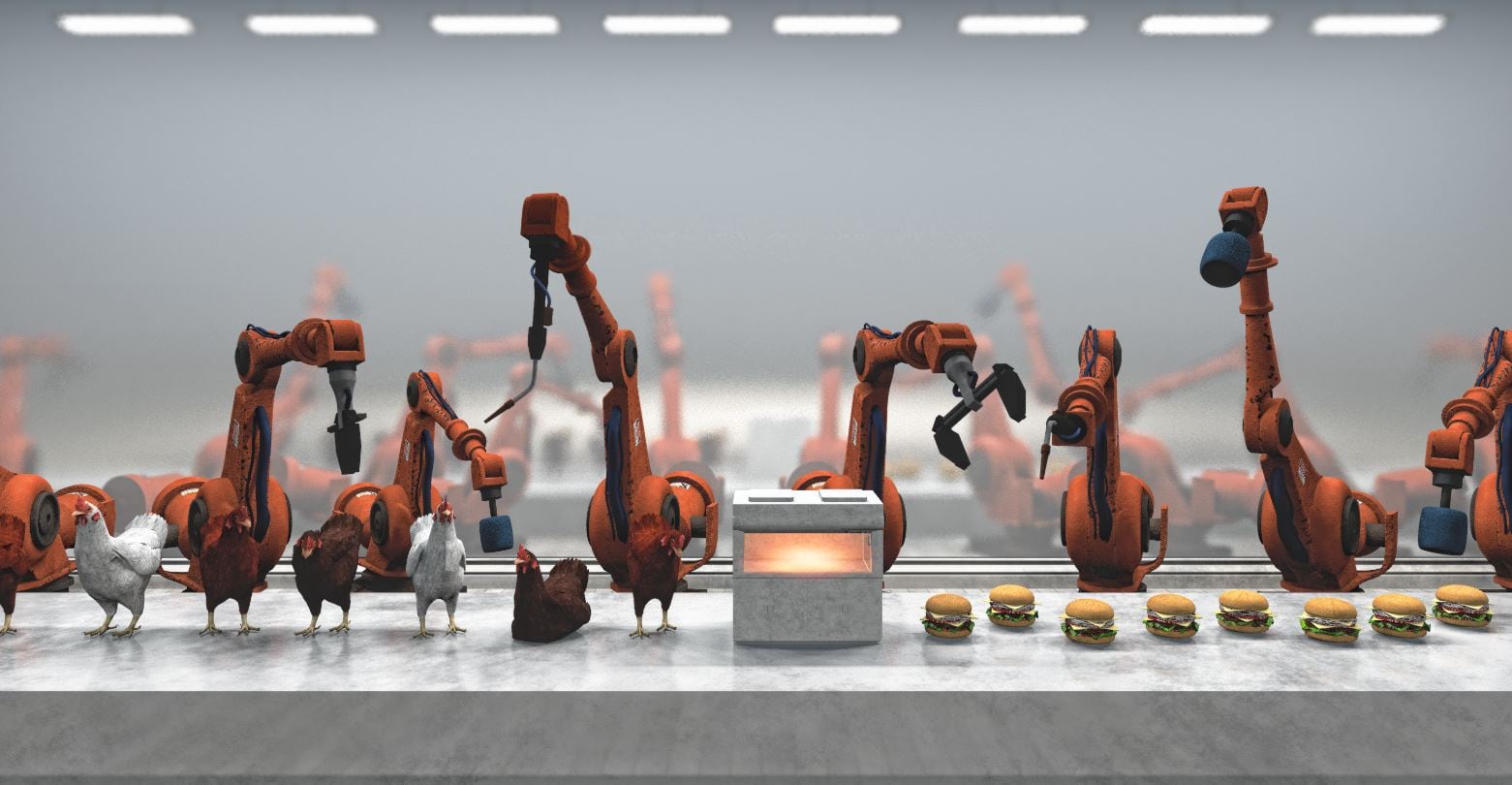Along with five key recommendations (see box below) that would bring together the entire food ecosystem under one governmental working group, the report urged policy makers to make significant investments in future food tech and “advanced manufacturing strategies” to make food and beverage manufacturing a priority sector.
Join us for the free Climate Smart Food digital summit
“Food manufacturing is the largest manufacturing sector in the economy and integral to food security”, said the Policy Exchange’s Strengthening the UK’s Food Security report.
Within that, the UK government should broaden its agri-tech strategy to become a “food security strategy”, including within that food and drink manufacturing, as well as logistics and retail among other elements of the food and drink ecosystem.
Food and drink sustainability
Ensuring the sector remains futureproofed by including it in the Department for Energy Security and Net Zero was vital, and should see the food ecosystem become a pivotal part of the UK’s wider journey to net zero.
Just as important was a clear strategy around investment. “The British Business Bank should establish a new Food Security Transformation Fund focused on technology investment across the food ecosystem to help de-risk expensive capital investments,” said the report.
Such a fund would promote novel solutions across the food ecosystem and could contribute towards food security “from farming through manufacturing to logistics, wholesale, retail and hospitality”, the report continue.
“This would support uptake of robotics automation and digital technologies in food and drink; as well as unlocking private-sector investment.”
Additional focus on tech and machinery investment should come from the Department of Business and Trade, which should target machinery and equipment makers, as well as software companies, who supply food and drink manufacturers.
Four ways to boost UK food and drink innovation
“Significant inward investment from these companies would strengthen the UK food manufacturing base and support greater pull-through from primary production,” it said.
Four recommendations to bolster innovation were made by the report, including converting an existing government food production strategy into a food security strategy to focus on food ecosystems research; expansion of the newly-formed agri-tech centre into a food security centre to further support research and innovation; establish a new food security research centre within a leading university; and better targeted funding at the technical level.
The report highlighted the struggles facing the UK food and drink sector, said Food and Drink Federation CEO Karen Betts, who said the country’s current ability to produce food and drink in a safe and sophisticated way should not be taken for granted.
“Challenges lie ahead which need investment if our food system is to remain secure – from the innovation needed to tackle climate change, raise productivity and invest in new products, to keeping prices fair for suppliers and consumers, and ensuring the UK strikes the right balance between domestic production and trade,” said Betts.
Five key UK food and drink manufacturing recommendations made by the Policy Exchange report:
- Government should develop a National Food Security Strategy that encompasses the entire food ecosystem. A National Food Security Strategy should address the entire food ecosystem, including manufacturing, logistics, wholesale, retail, and hospitality. It should be overseen by a Cabinet Committee or ministerial working group, collaborating with government departments, bodies, and devolved governments to develop the strategy, resolve interdepartmental policy differences, ensuring the creation of a food system fit for the future.
- Government should construct a clear long-term policy view that will reduce regulatory uncertainty across the food ecosystem and provide the confidence for investment in a lower risk environment. The sector is held back by uncertainty and short-termism and requires stability to invest. This should be led by the Cross Departmental Working Group and feed into the National Food Security Strategy, to create an environment that increases resilience to shocks and ensures food will be healthy, safe, affordable and sustainable.
- Future Industrial Strategies and Advanced Manufacturing Strategies should explicitly include Food and Drink Manufacturing as a priority sector. Food manufacturing is the largest manufacturing sector in the economy with nearly 20% of all manufacturing turnover in the UK coming from food and drink. The sector also employs 472,000 people, providing good jobs in every region of the country. It is critical that any future Industrial Strategy should have food and drink manufacturing at its heart to ensure the long-term sustainability of economic growth across the UK.
- The UKRI Transforming Food Production challenge should be relaunched and broadened to become Transforming Food Security. Relaunching UKRI Transforming Food Production challenge to Transforming Food Security would fund research across the food whole food ecosystem, with a particularly enhanced focus on food manufacturing on a similar level to agriculture, as well as investments in storage, logistics and retail.
- The Government should take a holistic approach to trade policy and food security. Although export promotion should remain key to UK trade policy, a greater consideration of the role of imports and intermediate suppliers will help increase the resilience of the UK food system and supply chain.





